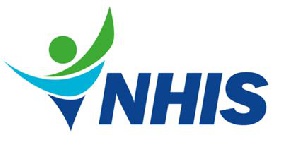Health News of Thursday, 20 November 2014
Source: NHIA
NHIA and Korea deepen ties
Ghana’s collaboration with the Republic of Korea in the area of health insurance appears to be growing and yielding results at a fast pace. Four officials of the National Health Insurance Authority (NHIA) are currently in Korea at the invitation of the Korea Foundation for International Healthcare (KOFIH), in a group effort to compare notes and adopt best practices.
Leader of the Ghanaian team, Dr Francis Asenso-Boadi, Deputy Director of Research and Development at the NHIA, in a presentation, told his Korean counterparts that Ghana’s scheme though only a decade old has garnered enough experience and support to quicken its growth into the future. According to him, the NHIS has “made significant progress in providing financial risk protection for residents in Ghana over the past decade.”
He mentioned that the main challenge of the Ghana scheme is financial sustainability. Dr Asenso-Boadi indicated that the membership of the scheme has grown from about 1.3 million people in 2005 to 10.1million in 2013. He however said the growth in claims from 2005(7.6 million cedis) to 2013 (785 million cedis) has not seen a corresponding growth in financial inflow to the scheme resulting in sustainability difficulties.
He observed that the sources of funding for the scheme have remained almost the same since the scheme’s inception and premium for example has never been reviewed. He said government is considering a proposal submitted to it by the NHIA on how to raise additional funding for the scheme.
The Ghana-Korea collaboration on health insurance began last year after a team from Korea visited Ghana expressing interest in a bilateral arrangement that will see the two countries share experiences and compare notes. A number of exchange programs and research collaborations have since taken place and this current invitation is seen as a deepening of a thriving relationship between the two sides.
Health insurance in Ghana is free for about 70% of the subscriber base of the scheme. This includes persons below the age of 18 years, indigents, pregnant women, the aged and SSNIT contributors, who are all exempted from paying premiums. It was recommended at a recently held Ministry of Health Stakeholder Dialogue last month that the exemption policy being run by the scheme though in accordance with law, is not sustainable and constitutes a major financial drain on the purse of the NHIS.
Unlike Ghana, Korea has instituted a co-payment regime where the patient and their health insurance service split healthcare cost. The patient pays between 20% to 60% of total healthcare cost depending on whether the subscriber presents an out-patient or in-patient condition.
In Korea, medical entitlements are based on premiums, and premiums are also calculated on people’s monthly earnings. A strict premium imposition and collection administration exist in the Korean system where people’s properties are confiscated and accounts frozen when people default in paying their annual premiums, according to Jo Hyegun, an official of the Korean NHIS.
It is compulsory for every citizen of that country to belong to the NHIS and also mandatory for all their 81,000 healthcare facilities to be NHIS accredited.
Though South Korea has made tremendous strides in providing health insurance for their entire 50 million population, and seen as a leading light in the Asia region, they have also been faced with financial challenges attributed to supply-side regulation issues.
The life expectancy in Korea is 80 years and one of the difficulties their health system is currently grappling with is their aging population. In fact, it is estimated that by 2018, Korea will become an aged country and efforts are currently being undertaken to enable them contain the special challenges of that era.
Korea’s journey to Universal Health Coverage began in 1963 with the passage of the Medical Insurance Act. Ghana’s started in 2003 with the passage of the National Health Insurance Act, 2003, Act 650.
Other members of the Ghana team are Emmanuel Reinfred Okyere, PME Manager, Selorm Adonoo, Communications Manager and Abdul Samed Tahiru Abdulai, District Manager at the Atwima Mponua office of the NHIA in the Ashanti region.










